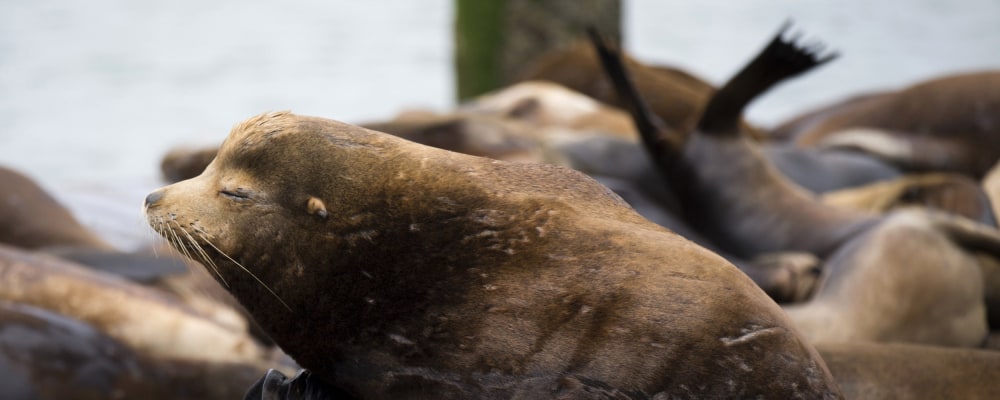NBC NEWS

In
this September 11, 2013 file photo, a sea lion scratches himself on
Pier 39 at Fisherman's Wharf in San Francisco, California. DON EMMERT / AFP - Getty Images
WASHINGTON
— A toxin produced by marine algae is inflicting brain damage on sea
lions along California's coast, causing neurological and behavioral
changes that can impair their ability to navigate in the sea and survive
in the wild, scientists said on Monday.
Brain scans on 30 California sea lions detected damage in the hippocampus, a brain structure associated with memory and spatial navigation, in animals naturally exposed to the toxin known as domoic acid, the researchers said.
Domoic acid mimics glutamate, a chemical that transmits nerve impulses in the brain, and leads to over-activation of hippocampus nerve cells and chronic epilepsy, according to Emory University cognitive psychologist Peter Cook, who worked on the study while at the University of California-Santa Cruz.
"The behavioral deficits accompanying brain damage with domoic acid are severe, and may negatively impact foraging and navigation in sea lions, driving strandings and mortality," Cook said.
Hundreds of sea lions annually are found stranded on California beaches with signs of domoic acid poisoning such as disorientation and seizures. Thousands are thought to be exposed to the toxin.
Brain scans on 30 California sea lions detected damage in the hippocampus, a brain structure associated with memory and spatial navigation, in animals naturally exposed to the toxin known as domoic acid, the researchers said.
Domoic acid mimics glutamate, a chemical that transmits nerve impulses in the brain, and leads to over-activation of hippocampus nerve cells and chronic epilepsy, according to Emory University cognitive psychologist Peter Cook, who worked on the study while at the University of California-Santa Cruz.
"The behavioral deficits accompanying brain damage with domoic acid are severe, and may negatively impact foraging and navigation in sea lions, driving strandings and mortality," Cook said.
Hundreds of sea lions annually are found stranded on California beaches with signs of domoic acid poisoning such as disorientation and seizures. Thousands are thought to be exposed to the toxin.
Read More Here

No comments:
Post a Comment
Hello and thank you for visiting my blog. Please share your thoughts and leave a comment :)